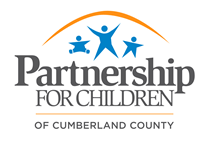The Family Focus Guide helps families and individuals in and around the Fayetteville area find resources in our community.
If you have a service-focused organization that serves families in the Fayetteville, Cumberland County area and would like to be listed, please email us at [email protected].
Assists schools with meeting the needs of at risk students in high poverty areas. School-wide services allow school improvement teams to utilize funds for every child in order to improve student academic achievement. Offers preschool programs for qualifying students at-risk of not meeting academic achievement standards.
If you are a grandparent raising your grandchildren you are not alone. There are approximately 2.5 million grandparents in the US who are solely responsible for the basic needs of their grandchildren. In Cumberland County, 3,783 grandparents are raising their grandchildren. Having someone who understands what you are going through can make a world of difference. The Partnership for Children of Cumberland County hosts a Grandparents Raising Grandchildren Support Group just for this reason. Our support group meets monthly and provides a way for grandparents to share stories and tips, spend times with others who are in similar situations, and learn about services available in the community.
Head Start is a federal matching grant program that was initiated in the mid-1960s as part of President Lyndon B. Johnson's "War on Poverty." The mission of the Head Start program is to "promote school readiness by enhancing the social and cognitive development of children through the provision of educational, health, nutritional, social and other services to enrolled children and families" (ACF, 2008). For eligible low-income children, Head Start provides free access to preschools, which are provided primarily in centers and are expected to conform to a specific set of guidelines laid out in the Head Start Program Performance Standards and other regulations (45 CFR 1301-1311, 2006). In addition to early childhood education, Head Start incorporates parental involvement and facilitates access to health care services; most Head Start programs also provide at least one meal to children during the day. The program requirements are flexible to meet the needs of the community, allowing individual programs to determine such program characteristics as the number of hours per day, or months per year, that a participation must attend; curriculum; teacher salary; and mode of delivery (in a home, a school, or a center)
Program Description: For all ages, through play, parents discover how to interact with their child in a way that promotes communication; problem solving skills; and fun centered learning. Meetings held every other month on the 1st Monday at the Partnership for Children Resource Center from 6:30pm - 8:00pm.
Maxim Healthcare Services has been making a difference in patients’ lives across the nation for more than 30 years. Our team of nurses and home health aides helps patients of all ages maintain the highest quality of life in the comforts of the home. We offer skilled nursing, companion care, respite care, and behavioral care for individuals with chronic and acute illnesses and disabilities. Our commitment to compassionate care and excellent service makes us an established provider wherever healthcare is needed.
Monday 8:00 AM-5:30 PM; Tuesday 8:00 AM-5:30 PM; Wednesday 8:00 AM-5:30 PM; Thursday 8:00 AM-5:30 PM; Friday 8:00 AM-5:30 PM
Provide direct support for families with special needs. Offer specialized in home nursing care and CNA's for high risk obstetrics, postpartum, pediatrics, and adults.
Provides home visits, infant care, and parenting classes.
The Nurturing Parenting Programs are family-based programs that can be offered in a group setting, in a home-visiting setting, or as a combination of both group meetings and home visitation.[1] Components of the program include 1) developing empathy, facilitating parent-child bonding and attachment; 2) teaching parents appropriate expectations of children’s growth, particularly ways to promote children’s feelings of self-worth, trust, and security; 3) employing discipline that promotes the dignity of children and adults; 4) empowering adults and children to nurture themselves, others, and their environment; 5) promoting positive self-worth; and 6) helping all family members develop a meaningful level of selfawareness and acceptance. Parent education programs that are designed to prevent the development of poor parenting behaviors are short-term, approximately five to 18 sessions in length. Parenting intervention programs are designed to “intervene” to prevent escalation in the early stages of maltreatment. These are generally from 12 to 20 sessions. Parenting treatment programs are designed to “treat” abusive and neglectful parent-child or parent-teen dysfunctional interactions. These are generally 15 to 25 sessions.
The Nurturing Parenting Programs are family-based programs that can be offered in a group setting, in a home-visiting setting, or as a combination of both group meetings and home visitation.[1] Components of the program include 1) developing empathy, facilitating parent-child bonding and attachment; 2) teaching parents appropriate expectations of children’s growth, particularly ways to promote children’s feelings of self-worth, trust, and security; 3) employing discipline that promotes the dignity of children and adults; 4) empowering adults and children to nurture themselves, others, and their environment; 5) promoting positive self-worth; and 6) helping all family members develop a meaningful level of selfawareness and acceptance. Parent education programs that are designed to prevent the development of poor parenting behaviors are short-term, approximately five to 18 sessions in length. Parenting intervention programs are designed to “intervene” to prevent escalation in the early stages of maltreatment. These are generally from 12 to 20 sessions. Parenting treatment programs are designed to “treat” abusive and neglectful parent-child or parent-teen dysfunctional interactions. These are generally 15 to 25 sessions.
Plans, adminsters, and advocates services for young children and their families. Provides funding for programs and services for young children under six years of age and their families, and access to high-quality and affordable childcare, health care, and other critical family services.
Friday 8-12 Noon
Provides residential services for at risk females up to age 17. Offers community support for males and females up to age 20. Also offer Diagnostic Assessments.
Prevent Child Abuse North Carolina (PCANC) is the only statewide organization dedicated to the prevention of child abuse and neglect. Through investment in innovative programs proven to prevent child maltreatment before it occurs, PCANC helps North Carolina's communities decrease factors that put children at risk for abuse and increase factors that encourage children to thrive. Through our offices in Raleigh, we serve every community in North Carolina.
Provides teens ages 11-18 who are first-time offenders an alternative sentencing opportunity to repay society for their offenses. Teenagers serve as clerks, bailiffs, and attorneys. Judges and trained attorneys serve as the Teen Court Judges. Teen Court also offers volunteer positions for older teens and young adults.


